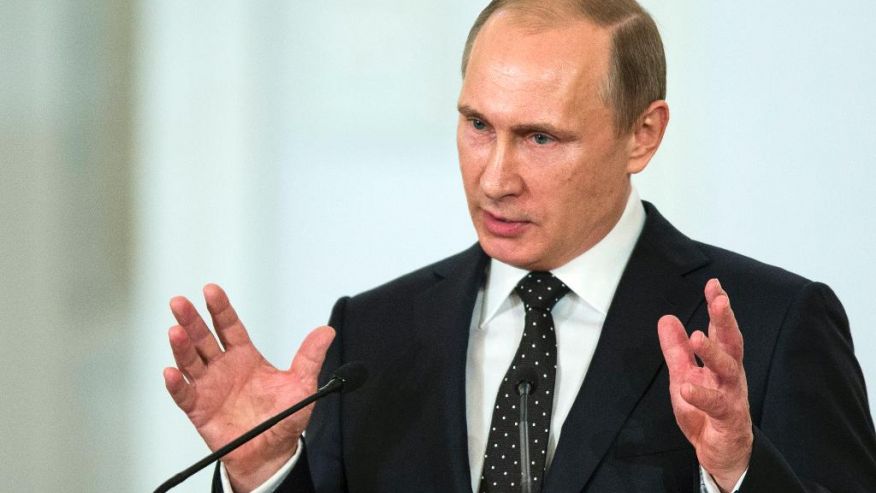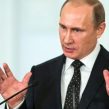
Celebrating Russia Day, the Country Finds Itself With No Future
Publication: Eurasia Daily Monitor Volume: 12 Issue: 111
By:

The meaning of Russia Day, the holiday celebrated last Friday, June 12, remains obscure and even foreign for the majority of Russians. Overall, the population has mixed feelings about the collapse of the Soviet Union, which was precipitated by the declaration of state sovereignty of the Russian Federation (commemorated by Russia Day) and the election of Boris Yeltsin as its first president 25 years ago (Kommersant, June 11). These sour reflections on that political breakthrough are shaped not only by the memories of the severe economic dislocation of the 1990s or ruminations on Yeltsin’s checkered performance. To a larger degree, these reflections are caused by the irrelevance of the values of liberty, democracy and human rights, proclaimed in that declaration, in today’s Russia (Ezhednevny Zhurnal, June 12). The newly-born Russia was inspired by the possibility of a peaceful and non-Communist future, while today’s deeply illiberal Russian state—controlled by and apparently united around President Vladimir Putin—is primarily proud of its “glorious” past.
Putin stressed the roots and traditions of Russian patriotism in his short Russia Day address; but what came out even stronger was his rejection of attempts to “decode” Russia so that it would fit some alien “formats” (Moscow Echo, June 12). This ambiguous message indicates a resolute departure from the “illusions” of liberation from the Soviet dogmas: The Russian state re-established 25 years ago defined itself by reuniting with Europe, while it is the rejection of and confrontation with the West that defines Putin’s Russia. This profound need to reconstitute Moscow’s antagonistic posture is only reluctantly acknowledged by Western allies. Last week, the European Parliament established that Russia was no longer a strategic partner for the European Union, and called on the European Commission to revise its strategy regarding bilateral relations accordingly (Kommersant, June 11). This corresponds with the firmly set shift in Russian public opinion, which now registers a 60-percent negative attitude toward the EU, against 25 percent who hold a positive view—only slightly better than the 73 percent of Russians with a negative attitude toward the United States (Levada.ru, June 8).
The reality of a new confrontation helps Putin consolidate his grasp on power, but it also leaves him in isolation, which is politically unprofitable and, most likely, psychologically uncomfortable. He seeks to reduce this downside by exploiting divisions in European unity. Last week’s visit to Italy, where he pledged his commitment to economic cooperation to Prime Minister Matteo Renzi and his devotion to Christian values to Pope Francis, was a means to this end (Nezavisimaya Gazeta, June 11). Another maneuver was the Russian head of state’s visit to Baku for the opening ceremony of the European Games, with the intention to revive his personal chemistry with Turkey’s defiant President Recep Tayyip Erdoğan (Rbc.ru, June 8). The shocking setback suffered by Erdogan’s Justice and Development party (AKP) in the recent parliamentary elections left him with an urgent need for a foreign policy success, and Putin needs it even more; but a common agenda has so far remained elusive (Forbes.ru, June 8).
Diplomatic maneuvering can yield only so much fruit when every counterpart is perfectly aware that Russia’s economic situation is worsening and that every new contract might suffer from force majeure produced by the apparently irreducible and possibly expanded sanctions. One aggravating impact, which also has sharp political context, is the reminder from the Council of Europe about the June 15 deadline for presenting the schedule for payment of 1.86 billion euros ($2.09 billion) to the Yukos shareholders, according to the July 2014 verdict of the European Court of Human Rights (Novaya Gazeta, June 11). What looms larger is the ruling of the Hague international arbitration court (also in July 2014), awarding the Yukos shareholders compensation amounting to $50 billion (RBC.ru, June 11). Russian government officials know full well that this decision cannot be appealed or ignored. But they work in a rather particular environment: economic rationale takes second place to Kremlin court intrigues, in which facts are twisted and denied according to the whims of the master, who does not want to hear the word “Yukos” (Moscow Echo, June 12).
President Putin’s obstinate insistence that the low point of the “so-called crisis” is already behind may reflect the reluctance of his advisors to present him with the statistics of falling output. But it may be also be informed by the conviction that no meaningful anti-crisis policy can be developed until oil prices start growing again (Polit.ru, June 8). From a populist perspective, he should address the fast increase in poverty, which now engulfs 16 percent of the population. But he is probably more concerned about the hidden discontent among the rich, who are deeply worried about the safety of their assets in Europe and have no intention of repatriating them (Gazeta.ru, June 12). The conclusion about the growing fiscal burden of the “rump-Novorossiya” in eastern Ukraine, all while many Russian regions are progressing toward bankruptcy, is inescapable; yet, he remains in denial (Newsru.com, June 10). At the same time, an even more substantial conclusion is looming large: it is becoming increasingly apparent that Russia is unable to sustain a protracted “dirty war” in Donbas, which is fueling an oscillating confrontation with the West. However, Putin refuses to face this fact, assuming that the risks of such a confrontation will ultimately prove unacceptable to the Europeans (Gazeta.ru, June 11).
The pattern of brinksmanship, in which air incidents in the Baltic theater interplay with tank and artillery engagements in the Donbas war zone, is so obviously detrimental to Russia’s interests that a determined effort at breaking it appears inevitable. Western leaders focus on measures for containing Russia, expecting that the break may come in the form of discharging tensions and managing the hostilities. For the Kremlin, however, the incentives to go in this direction are weakened by the need to justify the consequences of the maturing economic crisis to the demobilized populace and disgruntled elites. The more emphasis is placed on the “majestic” and “heroic” past, the less space there is for compromises and retreats for the policymakers entrapped in their own propaganda. Russia’s history is rich and tragic indeed, but turning the country toward a glorified and deeply false version of the past is not just a convenient means to politically prop up the regime. It promises to deny Russia a peaceful future, or maybe any future at all.




